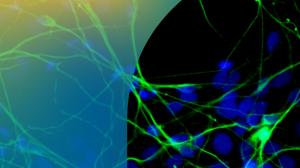Little Steps Toward Big Breakthroughs
The sun was barely up when Paul L. Modrich, PhD, heard his phone signal a text message. It was from a former post-doc, who had just heard the big news on NPR and was sending a note of congratulations. Modrich, a bit puzzled, logged on to the Internet. “We were on vacation at our cabin in New Hampshire,” recalls Modrich’s wife, Vickers Burdett, PhD. “It was seven in the morning. I’m half asleep, and he comes in and shows me the iPad, and there it was. It’s been chaos ever since.”
It was Oct. 7, 2015, and Modrich, a James B. Duke Professor of Biochemistry, had just learned that he, along with Aziz Sancar of the University of North Carolina at Chapel Hill and Tomas Lindahl of the Francis Crick Institute, had been awarded the 2015 Nobel Prize in Chemistry. The prize—which came just three years after Robert Lefkowitz, MD, won Duke’s first Nobel Prize, also in chemistry—was for three decades of research Modrich had done that showed how cells repair errors that occur in DNA as chromosomes replicate. He showed how mismatch repair (MMR), which catches and repairs errors in the genetic code, works in E. coli and in human cells. Winning the Nobel Prize changes any scientist’s life. For months afterward, messages arrived by the hundreds: congratulations, invitations, and requests for speaking engagements, media appearances, attendance at meetings and conferences, and so on.
While of course Modrich is honored to have won the Nobel Prize, he’s tried to keep it from disrupting his life any more than necessary. “You could spend most of your life flying around from one place to another giving talks and things,” he says. “But I’m a private person—we both are—and that’s not really what I want to spend my time doing. A friend told me, ‘Now you’ll be asked your opinion on many things you know absolutely nothing about.’ He was right.” Modrich came to Duke in 1976 from the University of California at Berkeley, where he was in a large department with a heavy teaching load. Duke offered exactly the environment he was looking for.
“I knew very quickly that I’d be happy here,” he says. “It was a small department with a family-like environment. The faculty were collegial and supportive, and they were superb scientists. The students were great, and I was able to focus on the work I wanted to do.” That work involved exploring the mechanism by which proteins identify and correct errors in the genetic code, and Modrich’s basic science research turned out to have important implications for human health. Modrich and others showed that MMR is inactivated in a common form of hereditary colon cancer and certain other cancers as well. “We didn’t know where it was going to go,” Modrich says. “Science moves in little steps, and you don’t always know where you’ll end up when you set out.”
Just as Modrich was beginning his career at Duke, Burdett was doing the same. She had worked on early gene cloning procedures at the University of California at San Diego before she came to Duke with a non-tenure track appointment in microbiology. She was studying drug resistant bacteria when her experimental work led her to Modrich. “I needed some EcoRI, a restriction enzyme isolated from E. coli, and I knew Paul had some, Burdett says. “So I came down to see if I could borrow some. I knocked on his door, and this real nice guy brought me some enzyme. And the rest is history.”
In 1998 Burdett began working alongside Modrich. She continues to this day as a senior research scientist in his lab. “We’re basically together 24 hours a day,” she says. “It just works. We’re comfortable together.”
Modrich and Burdett continue to do their research, but they also have their eyes on life post-lab.
They make regular road trips, with their dog in the back seat, to New Hampshire and to New Mexico,
Modrich’s home state, and it would be nice to be able to do those trips without having the demands of the lab always calling them back. And after winning the Nobel Prize, those demands have only grown.
“When you work in a lab, the science can become all consuming,” Modrich says.
“We still have some things we’re interested in learning more about, but soon we’re going to start winding things down. We’re looking forward to carving out a little more free time.”
Paul L. Modrich



